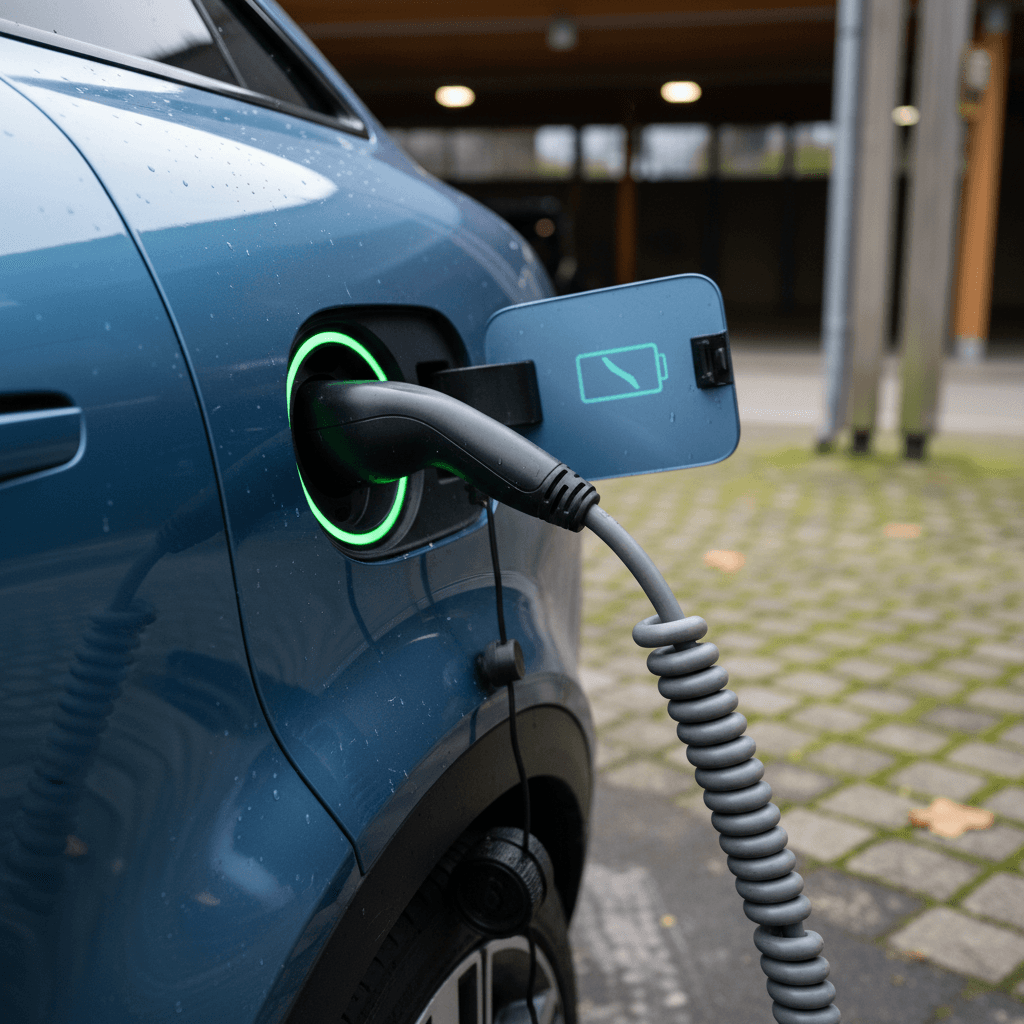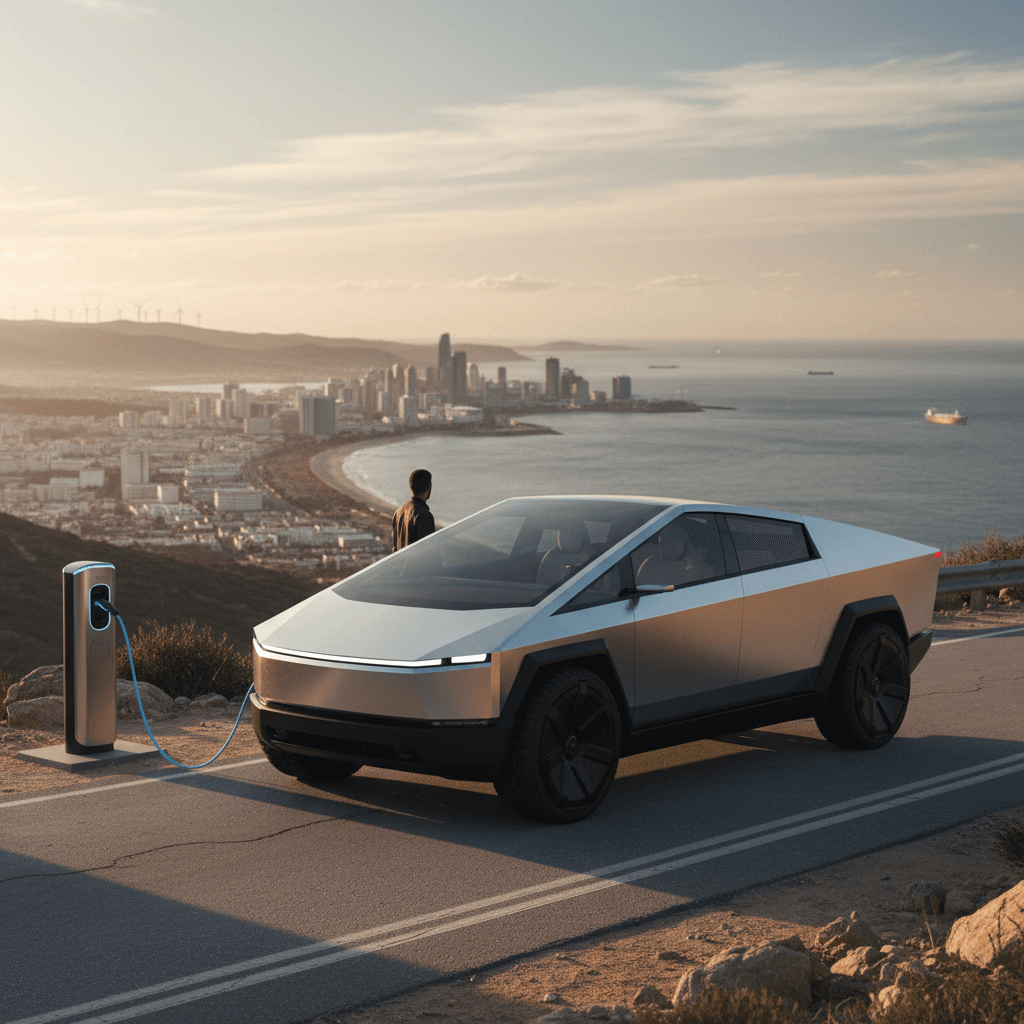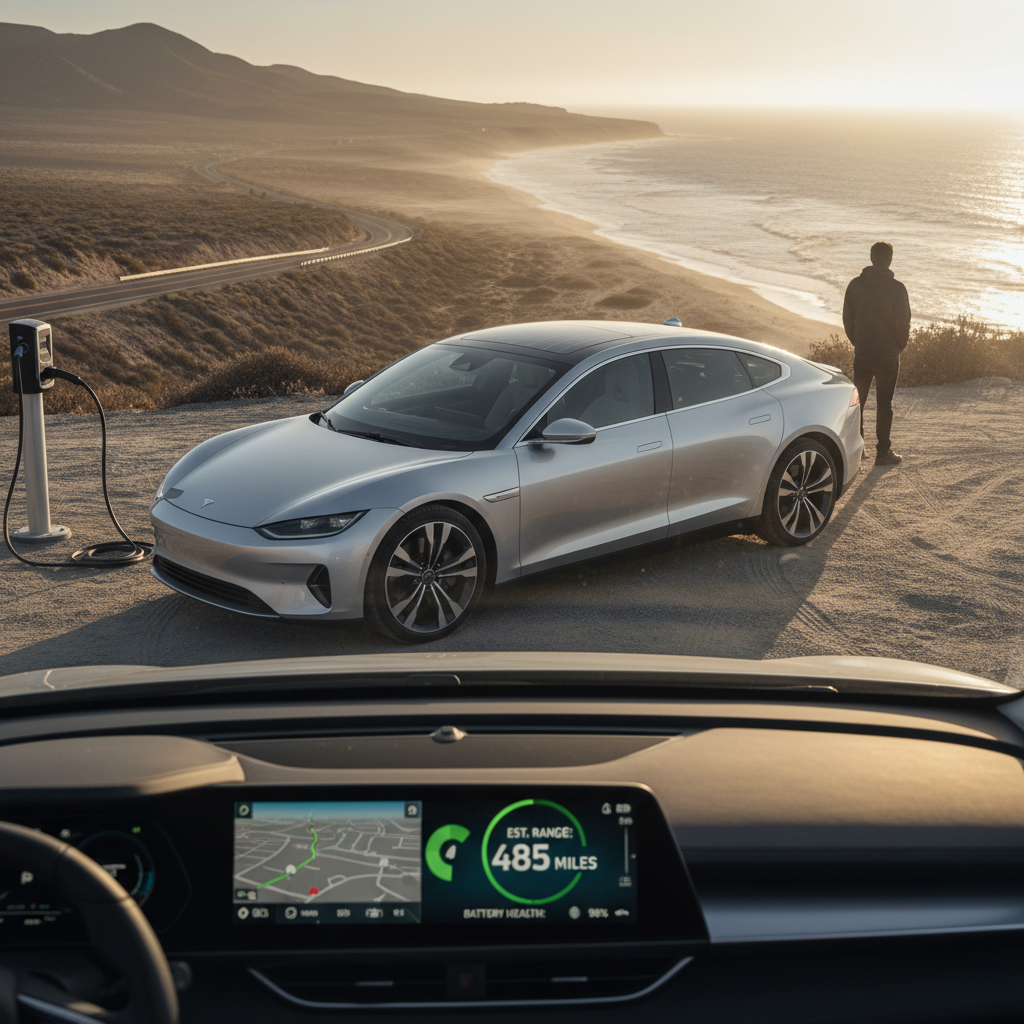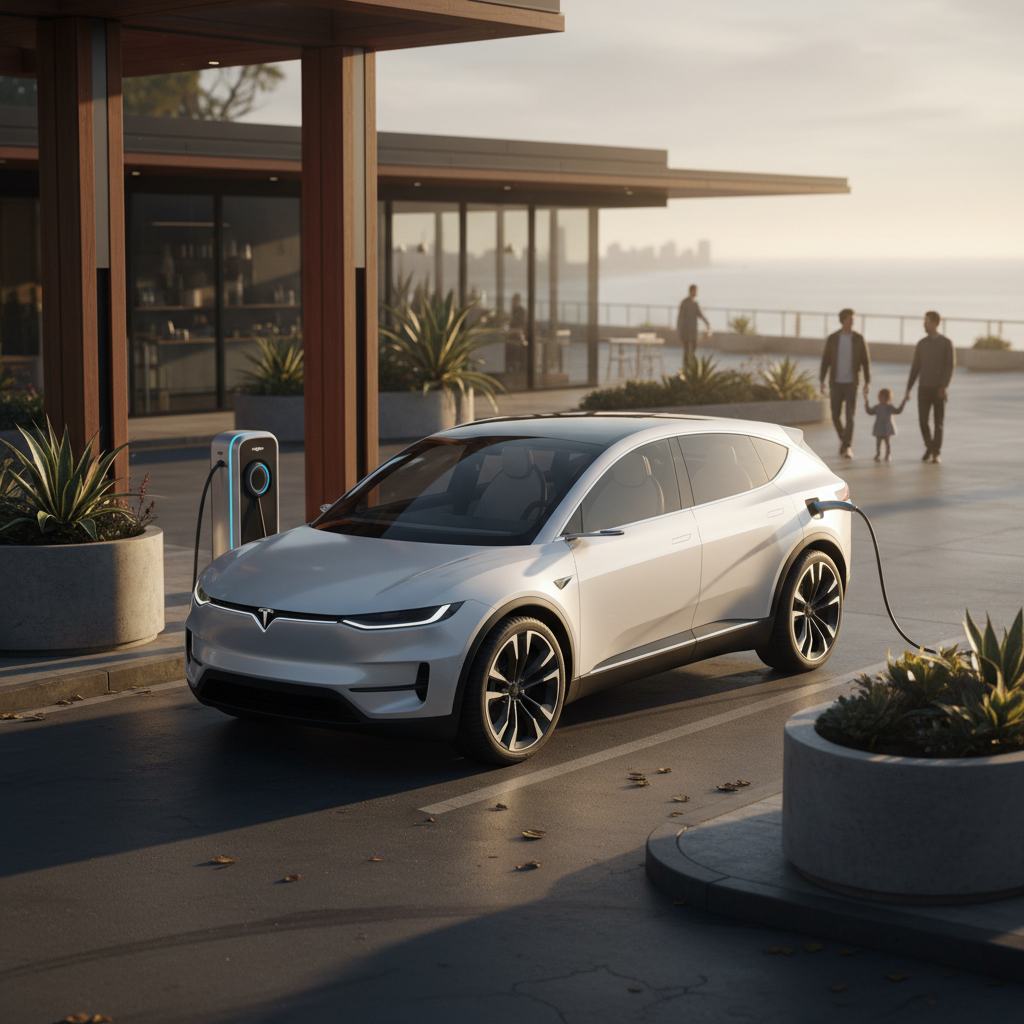If you’re shopping used electric vehicles for sale in 2025, you’re walking into one of the most interesting car markets in years. Used EV prices have fallen faster than gasoline cars, battery tech has improved, and more models than ever are coming off lease and into the pre-owned market. The opportunity is real, but so are the questions about battery life, depreciation, and incentives.
The short version
Why used electric vehicles are so attractive in 2025
The used EV market in 2025 at a glance
Three big forces are making used EVs especially compelling this year. First, rapid technology improvements mean early adopters are trading out of 2–4 year‑old EVs that still have plenty of life left. Second, federal purchase incentives for EVs expired on September 30, 2025, which makes used vehicles relatively more attractive compared with new. And third, EV batteries have simply aged better than many shoppers expected, easing fears that every older EV is a ticking time bomb.
Who benefits most from a used EV?
How much used electric vehicles cost today
Used EV pricing has cooled from the pandemic highs. Market data in early–to–mid 2025 shows average listing prices for used EVs around the mid‑$30,000 range, but that headline hides the real story: a large share of the best values sit below $25,000. That’s where you’ll find cars like the Chevrolet Bolt EV, Hyundai Kona Electric, and earlier Tesla Model 3s.
Typical price bands for used electric vehicles
Approximate U.S. retail prices you’re likely to see for popular used EVs in late 2025. Actual prices vary by mileage, condition, trim, and local demand.
| Price band | Typical vehicles | What you can expect |
|---|---|---|
| Under $15,000 | Older Nissan Leaf, BMW i3, early Kia Soul EV, high‑mileage Bolt | Shorter range (100–150 mi) but great city runabouts and second cars. |
| $15,000–$25,000 | Chevy Bolt EV, Kia Niro EV, Hyundai Kona Electric, early Tesla Model 3, VW e‑Golf | Solid 200+ mile range on many models, modern safety tech, remaining warranties. |
| $25,000–$35,000 | Newer Tesla Model 3/Y, VW ID.4, Hyundai Ioniq 5, Kia EV6, Ford Mustang Mach‑E | Longer range, DC fast charging, advanced driver assists, larger cabins. |
| $35,000+ | Luxury models like Porsche Taycan, Audi e‑tron, Mercedes‑EQ, Lucid Air, Rivian R1T | High performance, premium interiors, rapid fast‑charging, but higher insurance and tax bills. |
Use this as a starting point when you compare used electric vehicles for sale, then adjust for battery health, options, and history.
Watch for "too cheap" listings
Best used electric vehicles for sale right now
There’s no single “best” used EV for everyone. Your ideal car depends on range needs, budget, and whether you want a compact commuter, family SUV, or something a bit more fun. But several models consistently rise to the top when you balance price, range, features, and reliability.
Standout used EVs to target in your search
These models frequently show up as strong values in the real‑world used market.
Tesla Model 3
The go‑to used EV for many shoppers.
- Strong range (often 250–300+ mi when new)
- Excellent fast‑charging access via Tesla’s Supercharger network
- Over‑the‑air updates keep even older cars feeling modern
Pay close attention to wheel/tire size, battery pack variant, and whether fast‑charging has been used heavily.
Nissan Leaf (newer generations)
One of the most affordable used EVs on the market.
- Ideal for short commutes and city driving
- Later models offer 200+ mile range and more robust batteries
- Often undercuts other EVs on price
Earlier Leafs use CHAdeMO fast‑charging, which is slowly being phased out in the U.S., factor that into long‑term plans.
Chevrolet Bolt EV / EUV
A value champ in the used market.
- Rated up to ~259 miles when new
- Compact outside, spacious inside
- Many examples under $20,000
Confirm recall battery replacements were completed; many Bolts now have essentially “new” packs under warranty work.
Kia Niro EV & Hyundai Kona Electric
Efficient, practical crossovers with useful range.
- Real‑world ranges around 200–240 miles
- Conventional, easy‑to‑use cabins
- Strong factory battery warranties
Hyundai Ioniq 5 & Kia EV6
Excellent choices if you want cutting‑edge tech on a used budget.
- Ultra‑fast DC charging on the right trims
- Spacious interiors and modern styling
- Still relatively new, so prices run higher, but so does remaining warranty coverage.
Ford F‑150 Lightning & Rivian R1T
For shoppers who want a pickup, towing, or outdoor capability.
- Impressive torque and acceleration
- Great for home‑backup power in some configurations
- Be realistic about range when towing and in cold weather.

How to use model lists wisely
Battery health: the #1 thing to understand
In a used EV, the battery pack is the single most important, and most expensive, component. Modern packs are designed to last 15–20 years, and real‑world studies now show average degradation of under 2% per year. That means a five‑year‑old EV that started with 260 miles of range might realistically still offer around 235–240 miles, assuming normal use. The key is to verify, not guess.

How to check battery health
- Dashboard indicators: Many EVs show state of health (SoH) or at least remaining range at 100% charge.
- Compare to original range: Look up the car’s EPA‑rated range when new and compare it to what the car shows today.
- OBD‑II tools and apps: Some models allow deeper battery data via an OBD‑II dongle and EV‑specific apps.
- Professional diagnostics: Dealers and EV specialists can pull detailed reports from the car.
What counts as "normal" degradation?
- Single‑digit percentage loss over the first few years is common.
- A 10–15% drop after 5–7 years is typically acceptable.
- Big gaps between rated and displayed range can signal abuse, frequent fast‑charging, or thermal issues.
- Uneven cell voltages or repeated fast‑charge throttling in reports are red flags.
Why the Recharged Score matters
Warranties, maintenance, and running costs
One major reason used EVs are so compelling is that they’re cheap to keep on the road. There’s no oil to change, far fewer moving parts than in a gas engine, and regenerative braking means pads and rotors often last longer. On top of that, most EV batteries are covered by an 8‑ to 10‑year / ~100,000‑mile warranty, and that coverage usually transfers to subsequent owners.
Used EV ownership: where you save
Think beyond the purchase price, total cost of ownership tilts strongly in favor of EVs.
Fuel savings
Electricity is often the equivalent of paying $1–$2/gallon for “fuel,” especially if you charge at home on off‑peak rates. Over several years, a used EV can save thousands compared with a similar gas car.
Lower maintenance
No oil changes, fewer fluids, and fewer wear items. You’ll still rotate tires and service brakes and coolant, but most owners see significantly lower routine‑maintenance bills.
Battery & powertrain warranties
Battery warranties commonly run 8–10 years from new, and many cover replacement if capacity falls below a defined threshold. That protection often remains in force when you buy used.
Don’t ignore non‑EV basics
Where to find used electric vehicles for sale
Once you know what you’re looking for, the next step is deciding where to shop. You can absolutely find used electric vehicles for sale through local classifieds and general online marketplaces, but not all sources provide the same transparency or EV expertise.
- Dedicated EV retailers and marketplaces: Companies like Recharged focus on electric vehicles only, with battery health reporting, fair‑market pricing data, and EV‑savvy support staff.
- Franchise dealers: Many brand dealerships now carry off‑lease EVs, helpful if you’re loyal to a particular automaker or want certified pre‑owned options.
- Independent used‑car dealers: Selection can be hit‑or‑miss, and EV expertise varies, so ask specific questions about battery checks and charging standards.
- Private‑party sales: Often the lowest upfront prices, but you’ll need to do more of the homework yourself, battery diagnostics, inspection, and paperwork.
Why consider a specialist like Recharged
How Recharged makes buying a used EV simpler
Clarity on the car’s true condition
- Recharged Score Report: Independent assessment covering battery health, vehicle history, and pricing versus the wider market.
- Battery health diagnostics: Go deeper than the dash, see verified state‑of‑health data and how it compares to similar cars.
- Transparent history: Ownership, accident, and service information summarized so you’re not piecing together clues.
A smoother buying experience
- Digital first: Browse, get pre‑qualified, and complete your purchase online.
- Financing without the stress: Pre‑qualify with no impact to your credit, then choose terms that fit your budget.
- Trade‑in and sale options: Get an instant offer for your current vehicle or consign it, then roll that value into your next EV.
- Nationwide delivery + local experience: Have your EV delivered to your door or visit the Richmond, VA Experience Center.
Ready to shop?
Checklist: what to look for on a test drive
Used EV test‑drive & inspection checklist
1. Confirm real‑world range
Start with a high state of charge and note the estimated range. Does it align reasonably with the car’s original rating and the seller’s claims? A moderate drop is normal; a huge gap deserves more investigation.
2. Review the battery health report
Ask for documented battery diagnostics, not just a photo of the gauge cluster. With Recharged, this is built into your Recharged Score Report, so you know how the pack is performing versus similar vehicles.
3. Check charging hardware and standards
Inspect the charge port and any included home chargers or adapters. Confirm whether the car uses CCS, NACS, or CHAdeMO for fast charging, and make sure that standard is well‑supported where you live and drive.
4. Drive at highway speeds
Take the car up to typical freeway speeds. Listen for unusual wind or tire noise, check for vibrations, and watch how quickly the remaining range estimate falls at speed.
5. Test driver‑assistance features
If the EV includes adaptive cruise control, lane‑keeping, or parking aids, try them in a safe environment. These systems can add real‑world value, and they’re costly to fix if they don’t work properly.
6. Inspect tires, brakes, and suspension
Even though EVs need less drivetrain maintenance, they’re heavier than comparable gas cars. Look for uneven tire wear, brake pulsation, or clunks over bumps, issues that can eat into your budget after purchase.
Common mistakes to avoid with used EVs
- Focusing only on sticker price and ignoring battery health and charging standards.
- Overestimating how much range you really need for daily driving.
- Assuming every EV comes with a transferable tax credit, federal credits have ended, and remaining incentives are mostly state or utility‑specific.
- Skipping a professional inspection because “it’s just software and batteries.”
- Buying a CHAdeMO‑only car if you rely heavily on today’s DC fast‑charging networks in North America.
- Ignoring software features and connectivity (app access, updates, remote climate control) that affect day‑to‑day convenience.
Tax credit reality check
Used electric vehicles for sale: FAQ
Frequently asked questions about used electric vehicles for sale
Used electric vehicles for sale today combine steep depreciation, maturing battery technology, and low running costs in a way that’s hard to match with gasoline cars. If you take the time to understand battery health, range, and charging, and if you lean on tools like the Recharged Score Report, you can shop confidently instead of rolling the dice. Set your budget, define your real‑world range needs, then start comparing individual vehicles on their merits. The right used EV won’t just save you money at the pump; it can make every mile quieter, smoother, and a lot more enjoyable.



